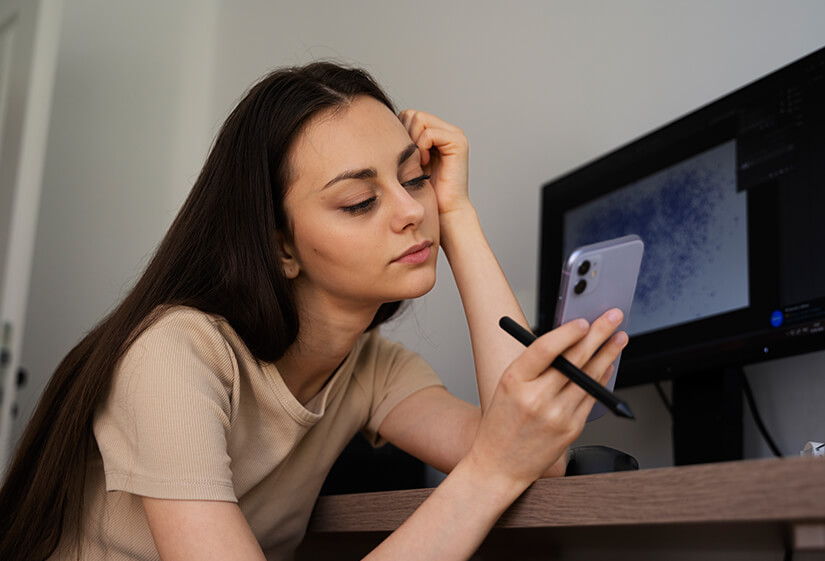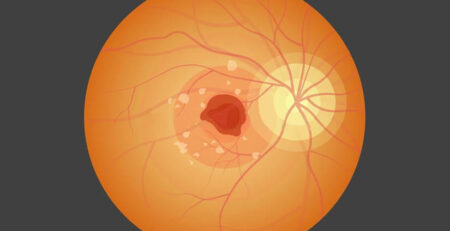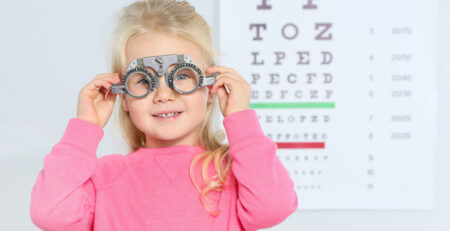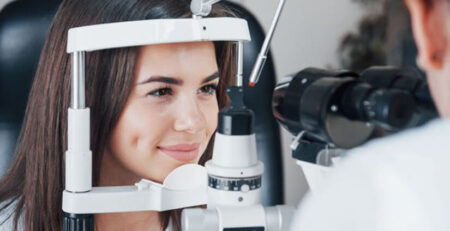What Are the Effects of Too Much Screen Time?
In today’s digital age, screens have become essential to daily life. Digital gadgets, including cell phones, computers, tablets, and televisions, always surround us. While technological innovation has certainly improved our lives in many ways, it also has its negatives, especially eye health. Excessive screen time for eyes can significantly impact our eyes, ranging from mild irritation to severe problems. In this blog, we will explore how continuous prolonged use of screens can affect our eyes and how we can reduce the impacts.
Let’s see!
Dry Eyes
Dry eyes are one of the most common symptoms of excessive screen usage. We stare at screens for long periods and limit the blinking frequency, resulting in insufficient moisture on the eye’s surface. This can cause stinging, burning, dryness, watering headache and redness. Untreated dry eye can cause inflammation and corneal damage over time, worsening the irritation and affecting vision clarity.
Eye Strain
Eye strain, also known as asthenopia, is another significant side effect of screen time. It causes tiredness and pain from staring at the screen for a period. Eye strain’s symptoms might include aching or tired eyes, impaired vision, headaches, and difficulty concentrating. These symptoms occur due to prolonged focusing on a screen, leading to eye muscle fatigue and decreased blinking, resulting in dry eyes. Furthermore, screen glare and flickering can cause eye strain, particularly in low-light conditions.
Blue Light Exposure
While blue light occurs naturally in sunlight and is vital for regulating our sleep-wake cycle and mood, extended exposure to artificial blue light from screens can harm our eyes. It can disturb our sleep cycle especially if there is too much exposure in the night time.It can accelerate ageing of the eye and damage the retina over time, resulting in disorders such as age-related macular degeneration (AMD). ARMD affects the central part of the retina (macula), leading to gradual loss of central vision, which can significantly impact daily activities like reading and driving.

Risk of Cataracts
Prolonged screen time for eyes may also increase the risk of cataracts. Cataracts occur when the eye’s natural lens becomes cloudy, leading to blurred vision and, eventually, vision loss if left untreated.
Increased Power in Young Children
Excessive screen usage in young children can seriously affect their eyesight development. Studies have indicated that continuous gazing at screens for long periods raises the risk of myopia (nearsightedness). The occurrence of nearsightedness among youngsters has increased significantly during the last 30 years.
Fortunately, you can take some precautions to reduce the negative impacts of excessive screen time on your eyes:
- Follow the 20-20-20 rule: take a 20-second break every 20 minutes and look at something 20 feet away to give rest to your eyes.
- If you experience any adverse effects, you should consult an eye specialist in Delhi for appropriate eye treatment.
- Reduce screen brightness, adjust font size, and use anti-glare filters to make screens more comfortable to view.
- Position screens at eye level and ensure adequate lighting to reduce glare and eye strain.
- Drink plenty of water to keep the eyes moist and prevent dry eye symptoms.
- Encourage your children to spend time outdoors, as natural sunlight can help reduce the risk of myopia development.
Reducing the screen time for your eyes, incorporating healthy habits and consulting an eye specialist can help you prevent further vision loss.











